 Two anti-establishment socialist candidates won respective elections on 13th of November; Igor Dodon in Moldova and Rumen Radev in Bulgaria. Photo: dodon.md & USAF / Nathan L. Maysonet
Two anti-establishment socialist candidates won respective elections on 13th of November; Igor Dodon in Moldova and Rumen Radev in Bulgaria. Photo: dodon.md & USAF / Nathan L. Maysonet
Bulgaria and Moldova follow the ‘Trump path’
Two ex-Socialist European states have just elected anti-establishment presidents that seek closer relations with Russia. Unlike Trump, they are socialists and want to build strong ties to Russia, but a common trait is that they all challenge an unpopular establishment that is financially and morally corrupt.
Published: November 18, 2016, 6:03 am
In the span of just several days, pro-Russian candidates have won three national elections on different sides of the world: Donald Trump in the USA on the 8th of November, Rumen Radev in Bulgaria and Igor Dodon in Moldova both on the 13th of November. At least, that’s what the political establishments and mainstream media in Europe and America keep repeating – that each of the three new leaders is closely connected to Russia in general, and Russian President Vladimir Putin in particular. Reality may be somewhat more complicated, however.
It’s undoubtedly true that three candidates did defeat opponents that carried anti-Russian messages, and in that sense they can be seen as Kremlin-friendly politicians. But, there is another thing that these three share, that could have helped their respective victories just as well: the economic disaster they all ran against. The USA is the biggest debtor in the history of human race. Moldova is by far the poorest country in Europe. And Bulgaria is officially the poorest country in the European Union.
Poorest in Europe
In Bulgaria and Moldova, economic hardship influenced elections even more than in the USA, as both nations have been verging on total collapse for decades. In many ways, Moldova represents a typical ex-Socialist country scenario. Only worse. Much worse. The corruption is rampant, the society is torn between East and West, and average monthly wages spiralled down to less than a hundred euro. The state is barely functional, while oligarchs are beyond the law; a year ago, three banks collapsed and almost a billion dollars – more than one tenth of Moldova’s GDP – simply disappeared!
The most appalling illustration of Moldova’s misfortune is the sex trade, for which this country pays a dreadful price. Moldovan girls, famous for their beauty, are the most common ethnicity in prostitution rings throughout European countries. Due to their poor background and limited options, they are usually sent to underdeveloped markets, most often fellow ex-Socialist states or Turkey and Middle Eastern countries.
Our source in the Serbian Police states that girls from Moldova make up more than 50 percent of all the foreign prostitutes in the country. We also talked to a girl that herself dodged such a fate, partially because her family moved out of Moldova five years ago, searching for a better life.
– Quite a few of my school friends went through similar horrible experiences, said Anna, 21, to our reporter. The family moved to the small neighbouring country of Pridnestrovie.
Pridnestrovie – poor but still not worst
Often and wrongly called Transnistria, Pridnestrovie is a de facto independent state, located on the Eastern bank of the river Dniester, between Moldova and Ukraine. Moldova doesn’t recognize it and considers Pridnestrovie part of its territory, but after a brief and bloody war in 1992, Pridnestrovie effectively cut all ties to the Moldovan capital Chisinau. Pridnestrovie even has its own currency, and is physically separated from Moldova by a border protected by international (Russian) troops.
The economy in Pridnestrovie finds itself in a dismal state, and corruption is also devastating. But, compared to Moldova, it is heaven. With monthly wages averaging 300 euro, Pridnestrovie looks like the promised land to many Moldovans, tens of thousands of whom have already moved there.
– We came here ten years ago, said Sergey, a taxi driver from Pridnestrovie’s capital Tirapol.
– Me, wife and three kids. And, even though there are many problems here, it’s incomparable to Moldova.
This is the background as to why the Moldovan electorate voted for Igor Dodon, 41, for President in the first presidential elections in 20 years. During the interim period, the head of the state was picked by the Parliament.
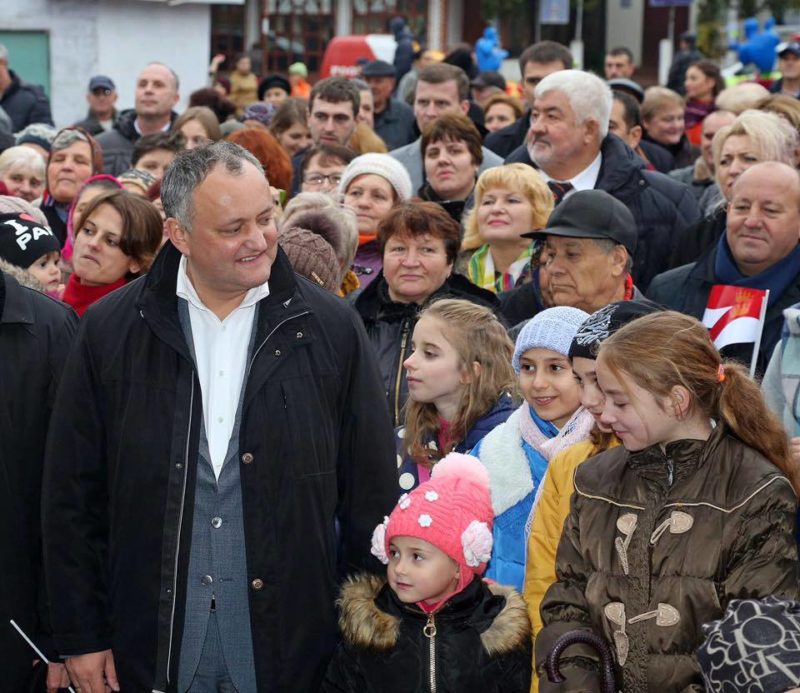
Igor Dodon defeated the pro-EU liberal candidate in the second round of the election. Photo: dodon.md
Nominated by the Socialist Party, Dodon advocates stronger ties with Russia (he personally and openly idolizes Vladimir Putin), a halt on never-ending European integration, and promises resolute measures against all-consuming corruption. His pro-EU rival Maia Sandu from the Liberal Democratic Party of Moldova also spoke against corruption, but her background – a former World Bank employee and a Harvard graduate – made her claim much more suspicious. Sandu was also accused of promising Angela Merkel to accept tens of thousands of Syrian migrants, in return for EU support. She categorically denied those reports, but, with Merkel’s track record of background deals with political figures from other countries, many of Sandu’s countrymen didn’t believe her. Fearing more of the same, or even worse, in case Sandu won, 52.2 percent of Moldovans voted for Dodon in the decisive second round, held on November 13th.
Bulgaria paid a heavy price for anti-Russian sanctions
The situation in Bulgaria is somewhat less gloomy than in Moldova, but not much. In 2007, the country finalized the process of joining the EU that had lasted for 14 years. In the same decade, however, Bulgaria suffered a heavy demographic decline, losing approximately 700.000 (an astonishing 10 percent) of its population between 2001 and 2012, mostly due to emigration. In the same period, the Bulgarian national debt more than quadrupled from 10.4 to 46.8 billion dollars.
The situation became even worse after EU adopted a confrontative stance towards Russia two years ago. The Bulgarian government turned down The South Stream project, a Russian oil and gas pipeline aimed at supplying the South-East of Europe with precious energy resources. Bulgaria did so under pressure from Brussels/Berlin, but they were the ones who suffered the most damages. Critics in Bulgaria point out that the government could have said no to the demands from the EU, especially considering that The North Stream was completed without any problems.
In return, Moscow withdrew all other planned Bulgarian projects as well, which quite possibly marked the turning point for the Balkan country that shares the Slavic and Orthodox tradition with Russia. On top of everything, Bulgaria suffered heavily from the sanctions the West imposed on Russia and countersanctions that the Kremlin replied with, crippling the already damaged Bulgarian agriculture which not so long ago was the nation’s pride, but now lies almost completely in ruins.
In such circumstances, Rumen Radev, an ex-air force general and a candidate of the Socialist Party, with 60 percent of votes in his favour delivered a devastating defeat to the government-backed Tsetska Tsacheva, during the second round of presidential elections held on November 13th. Prime minister Boyko Borisov therefore had to make good on his promise and resign, triggering early parliamentary elections that are to be scheduled soon.
What’s so radical about Radev? Not much, compared to Moldova’s Dodon. Radev is happy with Bulgaria being a member of both the EU and NATO. He is, however, visibly more well-intended toward Moscow than the current President Rosen Plevneliev, famous for his harsh rhetoric against Russia. Radev is also on record saying that Kiev actually lost authority over Crimea, and that it was not a forced annexation by Russia. Radev also spoke against Western sanctions on Russia and called for a harmonization of relations with Moscow.
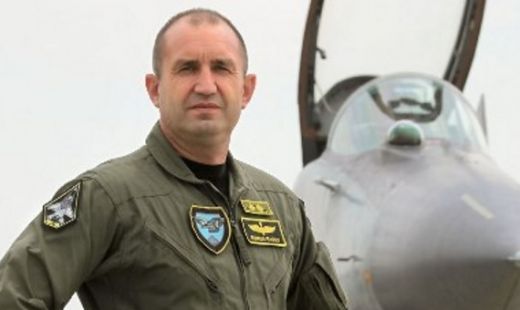
Rumen Radev, an airforce general, has been elected the new president of Bulgaria. Photo USAF / Nathan L. Maysonet
Just like Dodon and Trump, Radev promised to fight corruption and was also strongly against Bulgaria accepting migrants. “We don’t want our country to become a migrant ghetto,” he said during the campaign. And the voters obviously listened.
All in all, the victories for Radev and Dodon, just like Trump’s win, were heavily rooted in politics that opposed the establishment on crucial points concerning economic measures, the migrant issue, and finally relations with Russia. In effect, it’s not the “Red Scare” mainstream media is selling it as, but a return of nationalist politics that addresses the interests of the country rather than unpopular international trends like globalism. It seems that such views are exactly what electorates across the globe are seeking at the moment.
All rights reserved. You have permission to quote freely from the articles provided that the source (www.freewestmedia.com) is given. Photos may not be used without our consent.
Consider donating to support our work
Help us to produce more articles like this. FreeWestMedia is depending on donations from our readers to keep going. With your help, we expose the mainstream fake news agenda.
Keep your language polite. Readers from many different countries visit and contribute to Free West Media and we must therefore obey the rules in, for example, Germany. Illegal content will be deleted.
If you have been approved to post comments without preview from FWM, you are responsible for violations of any law. This means that FWM may be forced to cooperate with authorities in a possible crime investigation.
If your comments are subject to preview by FWM, please be patient. We continually review comments but depending on the time of day it can take up to several hours before your comment is reviewed.
We reserve the right to delete comments that are offensive, contain slander or foul language, or are irrelevant to the discussion.

New App Helps Locate Sweden’s Historic Runestones
A new app called Swedish Runestones will help locate historical gems.

Swedish military wants to remilitarize the Åland Islands
The demilitarized autonomy has previously been known as 'the islands of peace.

NOAA Predicts Zero Sunspots for Almost the Whole 2030s
CLIMATEThe United States' government scientific organization, the National Oceanic and Atmospheric Administration (NOAA), predicts zero sunspots from 2031 to 2040. This is an extreme situation that has not occurred in as long as humanity has been counting sunspots, and it leads us into uncharted territory in terms of our solar system. However, this prediction aligns with the warnings of the world-renowned solar researcher Valentina Zharkova for many years, who indicated in 2019 various signs of this catastrophic phenomenon, including the extreme hailstorms we have seen in Europe and the world this summer. The forecast and various observations this year give cause for very significant concern. In this unique analysis, Free West Media explains why.

European Nationalist Parties Forge Cooperation Ahead of EU Elections
EUROPEAN ELECTIONSOn Saturday, August 26, representatives of six European nationalist parties gathered in Budapest. The meeting was initiated by the Hungarian party Mi Hazánk and took place in the national parliament. Representatives of the parties signed a joint declaration that not only reaffirms the parties' friendship but also their unity on a range of complex political issues. A surprisingly clear and radical manifesto was established. The hope is that this cooperation will lead to success in the EU elections and eventually result in the formation of a group in the European Parliament. For Swedish nationalism, this meeting marks a success as Sweden, for the first time, has a party represented in a leading nationalist cooperation in Europe. Free West Media was present at this historic event.

Turkey Believes Sweden Hasn’t Done Enough
Sweden will have to wait a bit longer for NATO membership, according to Turkey's Justice Minister Jilmaz Tunc. First, Sweden must extradite the "terrorists" Turkey wants and stop the desecration of the Quran.

Swedish Weapon Takes Down Russia’s Best Attack Helicopter
The Russian attack helicopter Ka-52 is considered one of the world's best and has struck fear in Ukraine, where it has hunted down tanks and other armored vehicles, often beyond the range of many light anti-aircraft systems. However, it has met its match in the Swedish air defense missile system RBS 70, which has quickly led to significant losses for the Russian helicopter forces.

The Sun Drives Earth’s Climate, Not Carbon Dioxide
Top Researchers Push Back Against Climate Lies."The correlation is as clear as day," explained the Israeli astrophysicist Nir Shaviv, who was hailed by the establishment, before his interview with Forbes was hastily deleted. What he says contradicts the climate narrative, which points to humans as responsible for Earth's climate. Shaviv firmly asserts that it is the sun that controls the climate, something that can be scientifically proven in many ways. Contrary to the popular belief, the sun's influence on Earth has, in recent years, caused unusually cold and rainy weather, a trend that solar researchers warn will worsen significantly in the coming decades. The sun has exhibited an unusually low activity since 2016, during Solar Cycle 24, which was the weakest in a century.

Strong Confidence in German AfD
Alternative for Germany (AfD) held a party conference on July 29-30 to select candidates for the upcoming EU election next year. EU Parliament member Maximilian Krah, belonging to the party's more radical, ethnonationalist faction, was appointed as the top candidate. The party's two spokespersons delivered powerful speeches criticizing the EU's failed migration policy and trade sanctions that isolate Europe and Germany from the rest of the world. They argued that it's time for the EU to return a significant portion of its power to national parliaments. However, they have dropped the demand for Germany to exit the EU.

The Establishment Wants to Ban Germany’s Second Largest Party – for the Sake of Democracy
The rising popularity of AfD has raised strong concerns within the establishment. Despite lies and demonization in the media and isolation from the overall political establishment, the party continues to grow. Certain representatives of the party are accused of becoming increasingly "extreme," and in an unusual move, the influential weekly newspaper Der Spiegel demanded that AfD be "banned."

Dutch FvD break through the media blockade
What is happening in the Netherlands? It is often difficult to follow events in other countries, especially when distorted by system media. We give Forum for Democracy (FvD) the opportunity to speak out on the political situation in the Netherlands and the staunch resistance they face in trying to save the country.


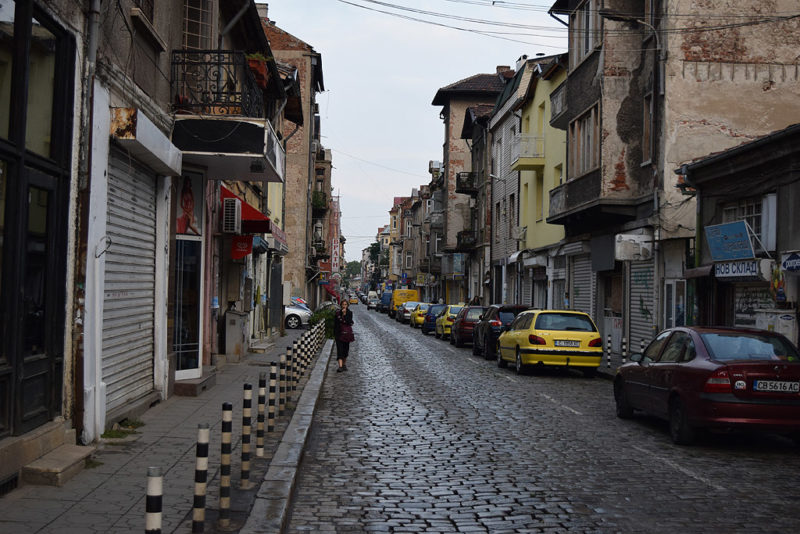
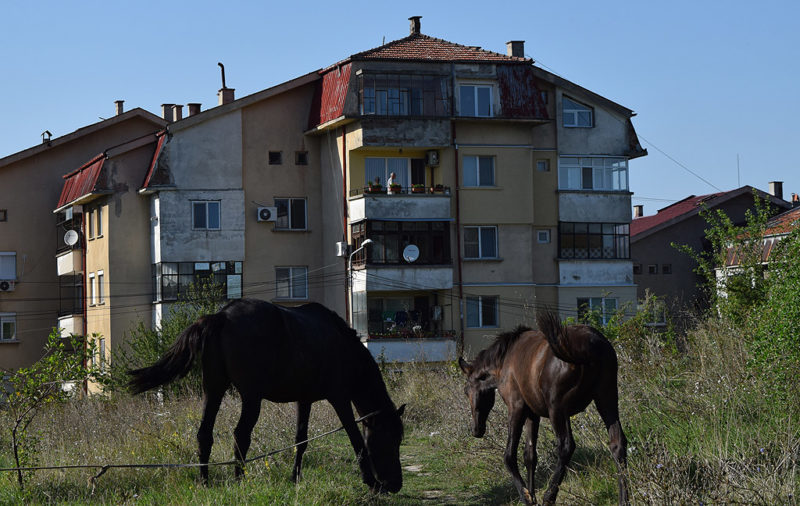
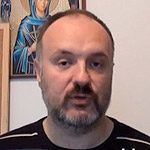
One comment
MAj. Gen. Rumen Radev in flight https://www.youtube.com/watch?v=sWGjdtKv2kk
By submitting a comment you grant Free West Media a perpetual license to reproduce your words and name/web site in attribution. Inappropriate and irrelevant comments will be removed at an admin’s discretion. Your email is used for verification purposes only, it will never be shared.